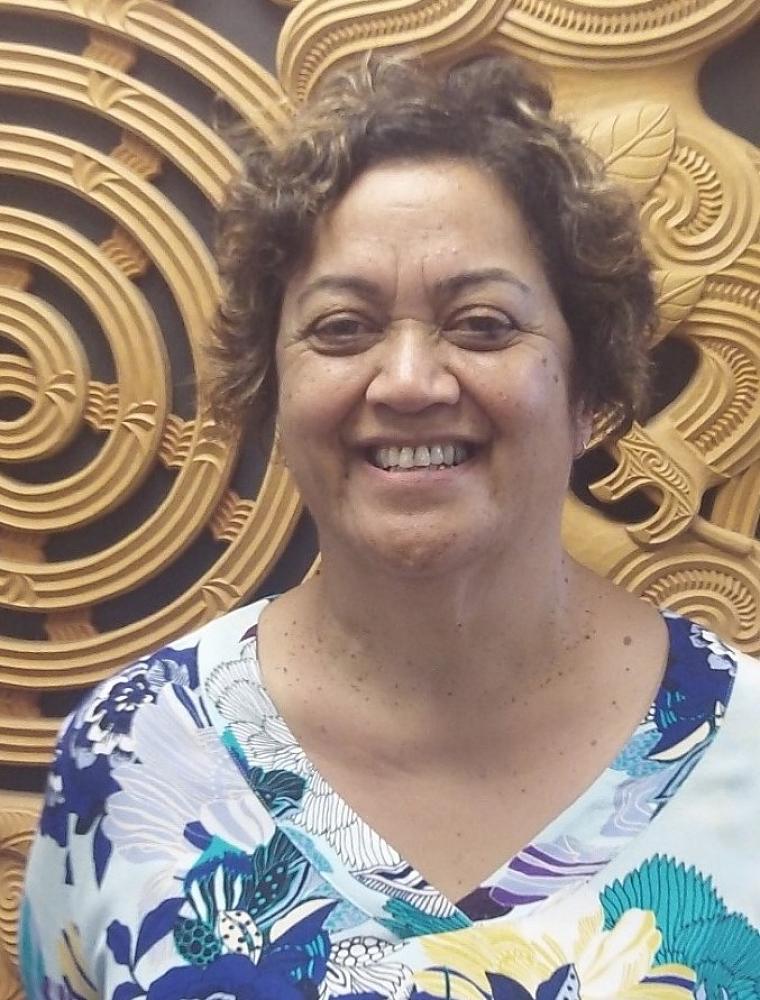
A New Mission
In the December issue of Touchstone, we introduced Shirley Rivers, Ngāi Takoto, Ngāpuhi and Waikato iwi, as she took on the role as Head of Methodist Mission Northern. Six months on, we ask Shirley to comment on her work, her priorities for the mission and a typical workday.
Following a lifetime association with the Methodist Church of New Zealand and active participation on numerous Connexional boards, trusts and task groups, Shirley Rivers is no stranger to the fact that processes can be slow to take effect in MCNZ. For the past two years MMN interim manager, Rev John Murray, has been filling the void one day each week. Establishing the new role has resulted in a steep learning curve and difficult induction for the new manager who brings a wealth of experience of church, theology and Tiriti /Treaty and Social Practice professional development education.
Shirley spent the past 20 years lecturing at the Waikato Institute of Technology (Wintec) in Social Work and Counselling degrees. Drawn to the MMN position by her community work background and love of Church, she has found the transition from Hamilton to Auckland relatively easy. Born in the Hokianga and brought up predominantly in Hamilton, she spent her early years at school in Tāmaki Makaurau, and many of her whanau live there. Adjusting to the commute from home to work has been more of a challenge, as the Hamilton traffic is sedate compared to the busy and stressful motorway system in Auckland.
Her priority over recent months has been to rebuild the MMN community foundations and networks. “Going out to the community, the mission services, meeting parishes and synods, supporting trusts in their work - learning about the challenges for families and what they are facing - has been my focus, ” Shirley says.
Looking closely at the bi-cultural response to the organisation, its partners and committees is also a priority. She has recently reached out to Ngāti Whātua Ōrākei working in an intentional relationship with them and to Te Taha Māori developing relationships and a Māori response that supports MMN, Lifewise and APT.
“One thing that is evident is that we need to make our Methodist and MMN history more known in ways that can help our Trustees, staff and community. Remembering our past provides a solid foundation for our future. Kia whakatōmuri te haere whakamua – I walk backwards into the future with my eyes fixed on my past.”
Shirley says there is no ‘typical’ day. She refers instead to planning purposeful days. This involves meetings with other agencies, chaplaincy services and working collegially with the other trusts, namely Airedale Property Trust and Lifewise, on whose boards she sits. Making connections with parishes and supporting their goals around mission with a strong theological foundation is a priority, as is tackling the complexities of the finances, processes and procedures of the many organisations associated with MMN.
“I am in meetings all the time. Meeting with people from the services who are working in the community helps me get past the administrative demands. Learning about the procedures, policies and systems are important parts of a healthy organisation. Some work is more task orientated and not so exciting but it is vital to support staff in their work. I am listening and learning. There are many compliance areas to support. There is a lot to do.”
Demands on her time – and church finances - from other volunteer roles have reduced considerably by the introduction of Zoom meetings, many scheduled for evenings or weekends. She admits to ‘being a bit of a workaholic’, adding, “When it is work I like doing, that makes it much easier.”
One of the key challenges she has identified is staffing. “The shortage of skilled staff is a real issue. It is challenging when government agencies provide a different rate of payment for their staff than their service providers. Our communities are less resourced and expectations are higher.”
As a self-proclaimed ‘newbie’, Shirley is appreciative of being part of the Methodist Alliance, and the benefits of the work they are doing in supporting the vulnerable communities they work alongside and in lobbying government on policy that affects all their members.
